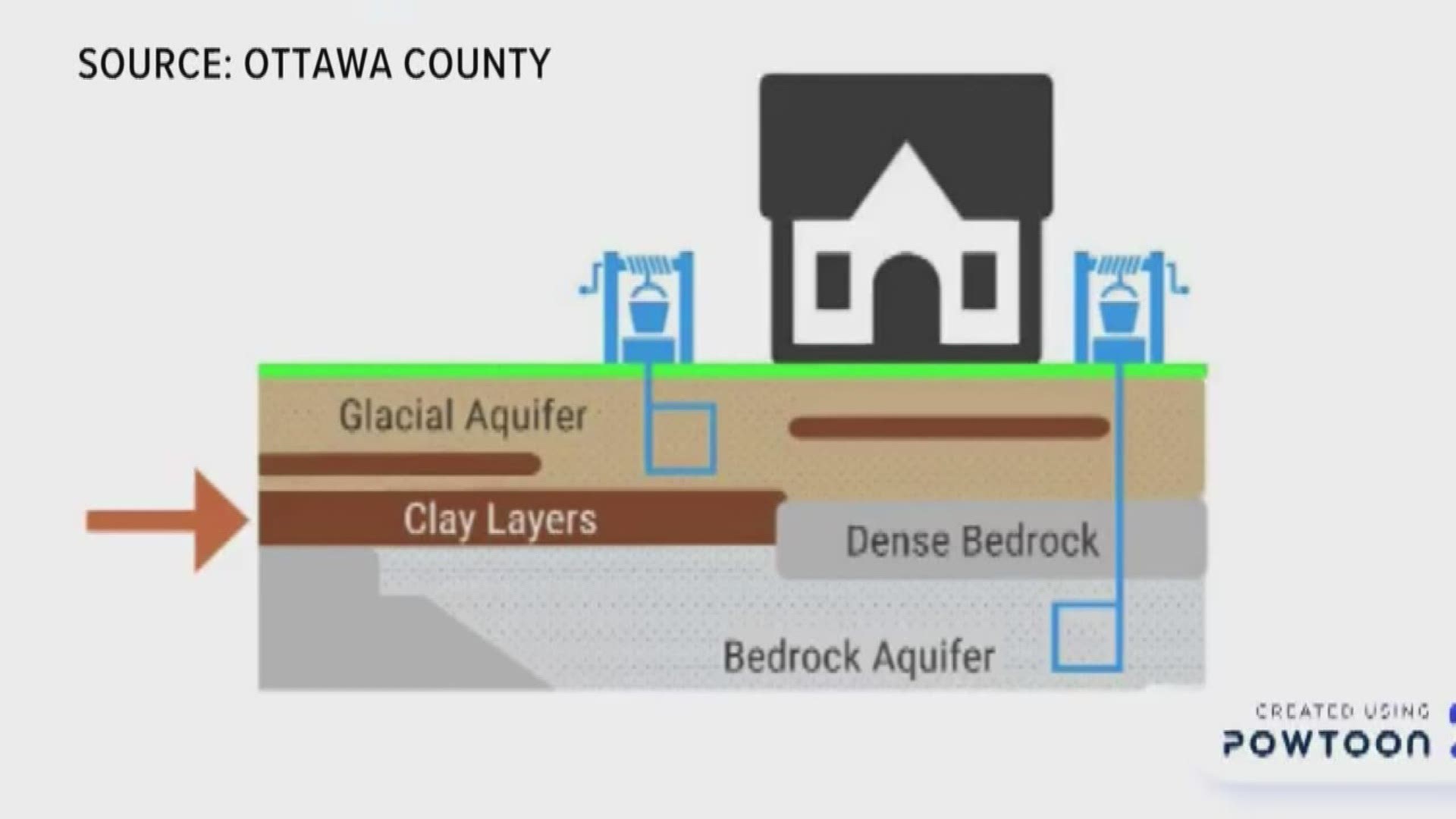OLIVE TOWNSHIP, Mich. -- Amid a groundwater shortage, a second Ottawa County community has halted residential developments in which homes are not hooked up to municipal water sources.
Olive Township officials established the moratorium on new well water developments around last May, joining Allendale Township, which banned them in February.
"We're dealing with people wanting to put developments in – 35 homes, 10 homes – and we want to verify the area can handle that [with] being on a well," Todd Wolters, the township supervisor said.
The decisions stemmed from a Michigan State University study which found quickly shrinking groundwater levels below multiple Ottawa County townships. A layer of clay is blocking water from recharging the county's deep bedrock aquifer.
Static water levels in the aquifer have dropped about 40 feet over the last 40 years, Paul Sachs, the director of planning and performance improvement for Ottawa County said.
"That is causing concerns and has had some legitimate challenges with homeowners not having access to water from their faucets and farmers who have experienced salty water as they irrigate their crops," Sachs said.
Much of the Olive Township does not have hookups to municipal water lines, which are costly to install. Some areas near the township border are connected.
Engineers are analyzing sites for future development to see if they require municipal hookups, Wolters said.
"We want to make sure that we're covered, that 20 years down the road the taxpayers throughout the whole township aren't paying to get water to certain areas because of the growth that came in," he said.
Both Blendon and Robinson Townships will also find it difficult to connect to municipal water sources, which is why the county is creating a mitigation plan, Sachs said.
"This is not an issue that can be solved with one solution," he said. "It won't be solved purely with one agency. Everyone needs to be a part of this solution."
The plan will contain four major components: education, behavioral change, mitigation and coordination. Some mitigation strategies include implementation of low-impact development designs and protective zoning through overlay districts.
The planning department hopes to submit a draft to the Ottawa County Board of Commissioners by the end of 2019.
"We need to be proactive to manage our water resources in the most effective matter possible, and that has to start today," Sachs said.
►Make it easy to keep up to date with more stories like this. Download the 13 ON YOUR SIDE app now.
Have a news tip? Email news@13onyourside.com, visit our Facebook page or Twitter

